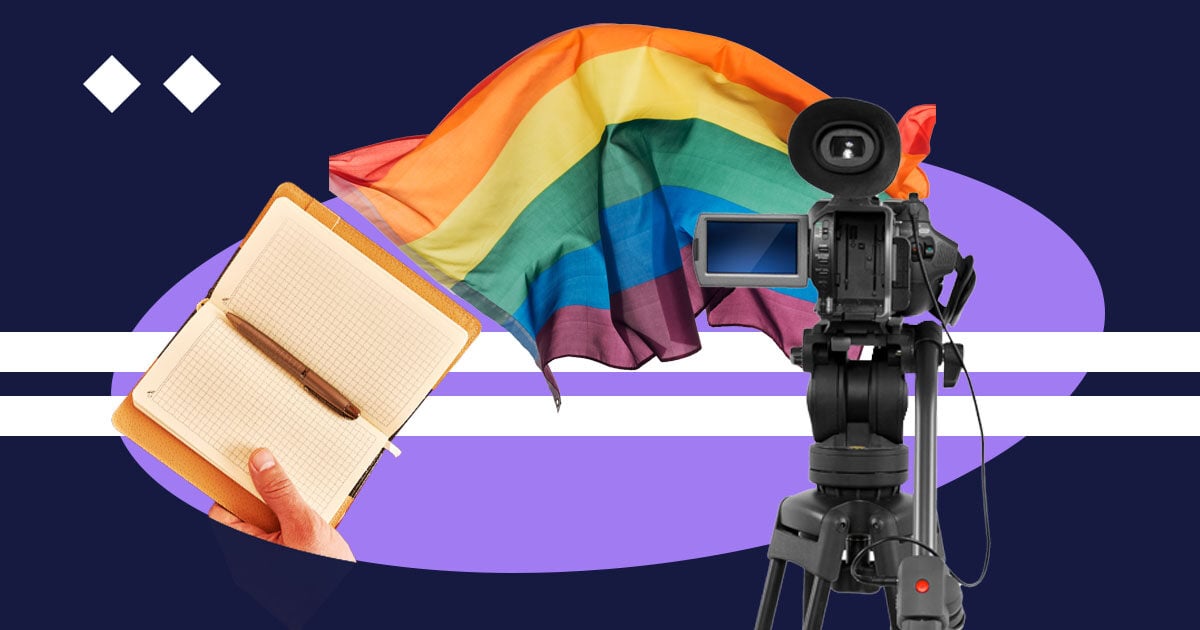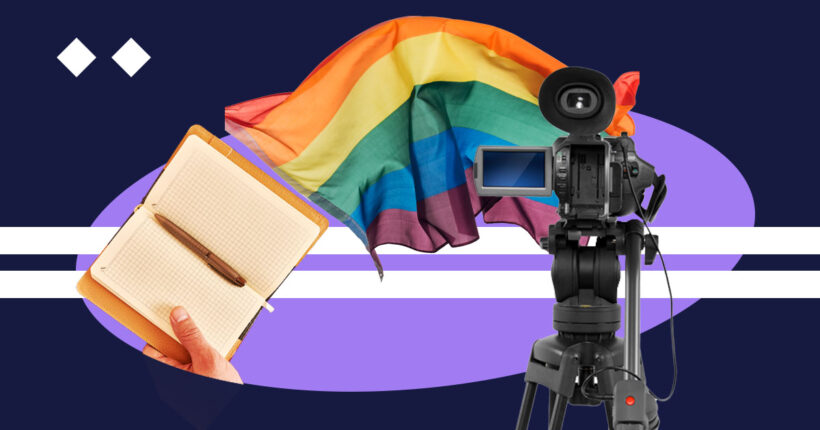
What is the problem?
With war continuing each day, war is all around in Ukrainian society — taking a psychological toll on everyone, and unfortunately manifesting in a higher level of social and domestic violence. Constant tension, repressed anger, and other negative emotions often spill out onto others in the form of hate speech and, in the worst case, physical force made worse by existing social attitudes of intolerance tolerance for people who have different lifestyles, behaviors, appearances or perspectives.
What is the solution?
The Tolerance Diary initiative was launched in Ukraine to advance tolerance and draw attention to the social problems facing our society. The series of informative and educational videos on YouTube consists of advice from experts and well-known people of Ukraine — psychologists, activists, designers, artists, business people, public figures, athletes, military, and specialists in rehabilitation and equality issues.
How does it work?
To rebuild a healthy nation and country
The Tolerance Diary was created on the initiative of the Obiymy Charitable Foundation, a volunteer organization that, since May 2022, has helped to meet the urgent needs of the Ukrainian military and civilians. It seeks out donors, buys provisions and ammunition, and delivers humanitarian aid to war-affected regions like Mykolaiv, Kherson, Sloviansk, and Kramatorsk – even during active battles and shelling.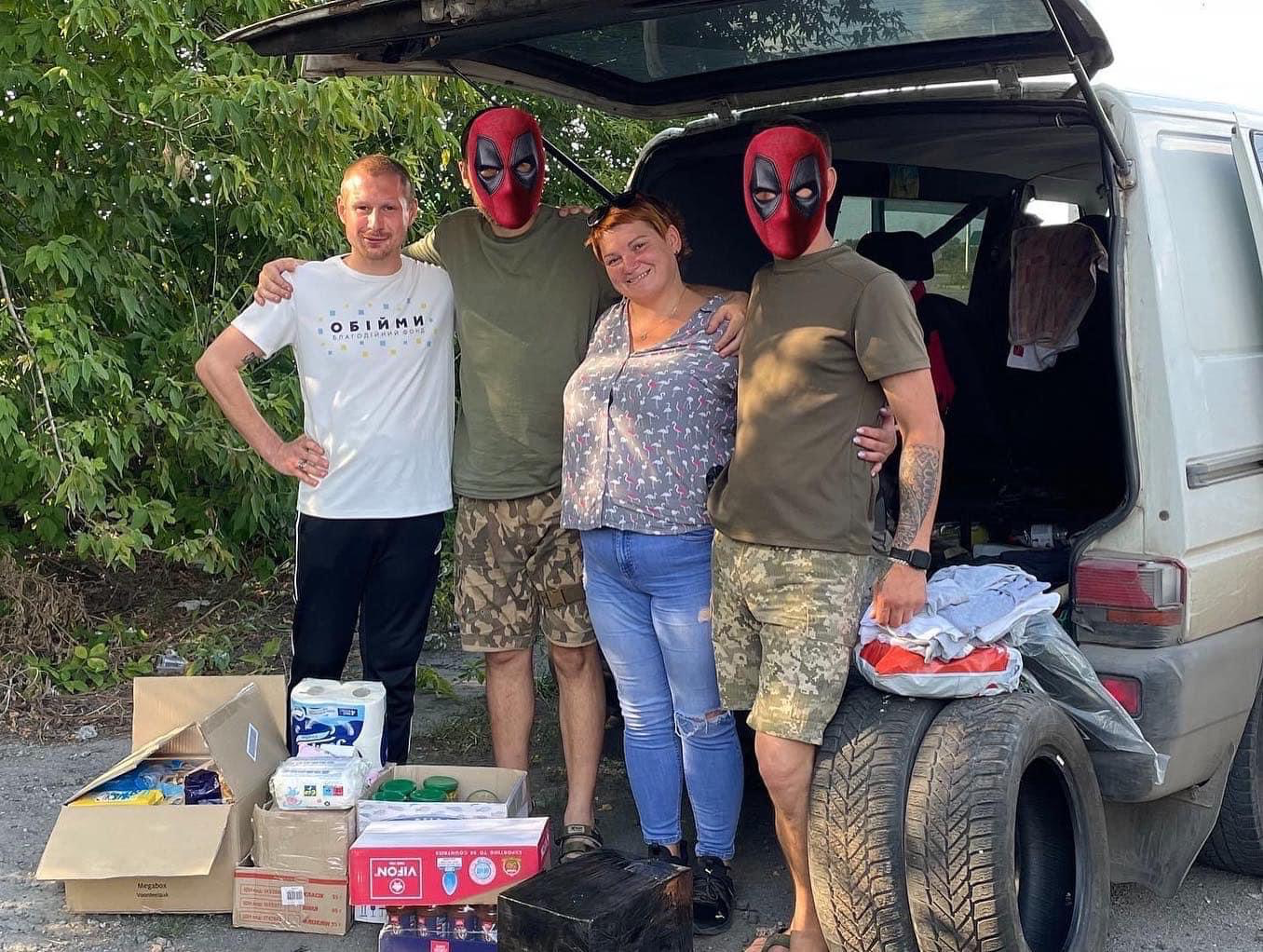 Aid to the frontline from Obyimy. Vladyslav Shast is on the left.
Aid to the frontline from Obyimy. Vladyslav Shast is on the left.
Since the beginning of 2023, the organization has chosen a course to protect vulnerable population segments. The main principle of the organization's work is protecting the rights of all residents of Ukraine, regardless of gender, age, race, ethnicity, orientation, or religion. Vladyslav Shast, Obiymy's chairperson, recalls that at the beginning of 2023, the team realized they were facing burnout from the amount of work done in 2022 – endless trips to war-battered areas, loading up humanitarian aid, sleepless nights, and working under explosions greatly affected volunteers' physical and emotional state. Then, they decided that they needed to change the course of their activity – supporting the military is their mission, but they also face internal issues, such as violence in its various manifestations. Studies indicate violence within society has increased by almost 30 percent in some areas – these are also important issues that must be dealt with so that after the war, Ukrainians can start rebuilding a healthy nation.
Since Shast is an openly queer human rights activist, the first thing that came to mind was to start with a familiar topic – launching a campaign in support of draft law 9103 on the institution of registered civil partnerships – and then to cover more social problems that currently exist in Ukrainian society. The activist decided to implement the new project in video format, based on the idea of a diary questionnaire.
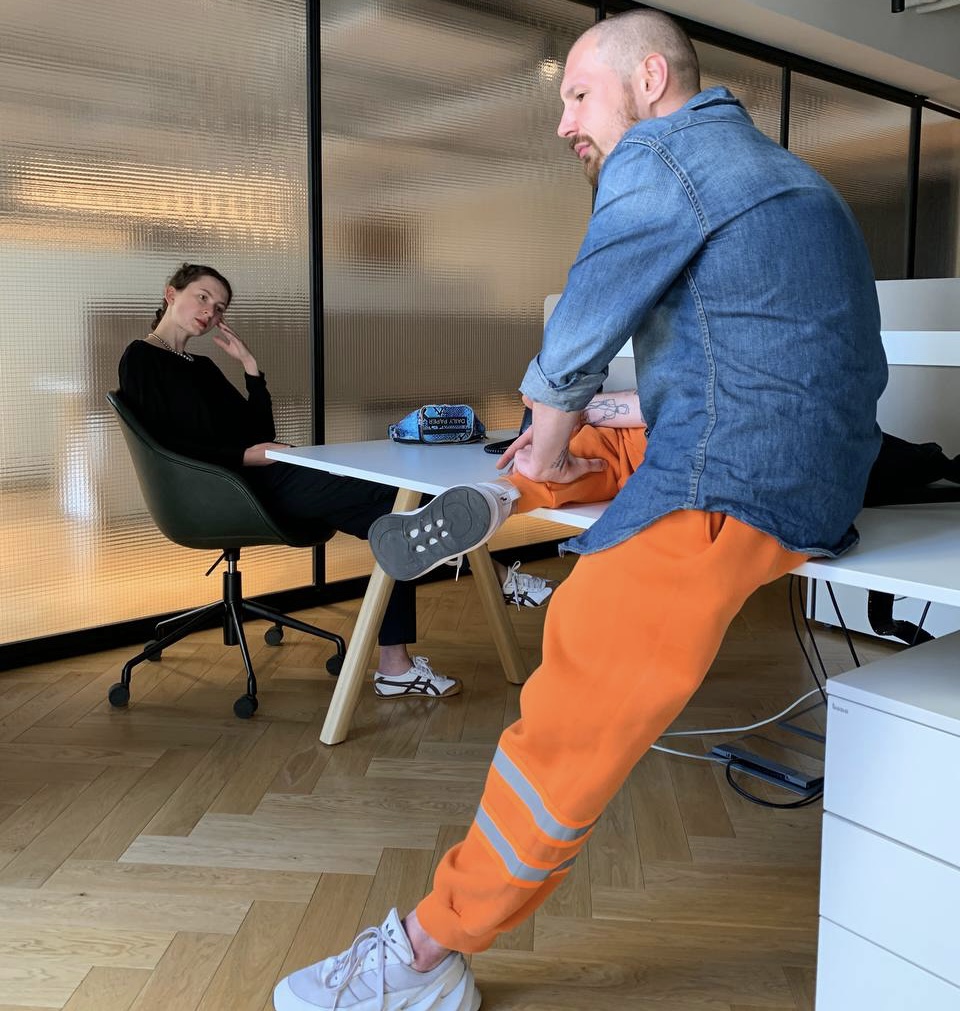
Vladyslav Shast and Anastasiia Danylyuk during the development of the project.
With this idea, the authorities met with representatives of the cultural space Kudryavka – and the project took off. Anastasia Danylyuk, Kudryavka's project manager, helped to conceive the concept of the project. Creative director and graphic illustrator Dasha Podoltseva took care of the visual identity, and editing director and videographer Olena Pryzenko did video editing of the releases. Oksana Stepaniuk, a qualified expert in psychology and psychotherapy, who created questions for the participants of the video episodes became the project's psychologist.
A project that heals and inspires
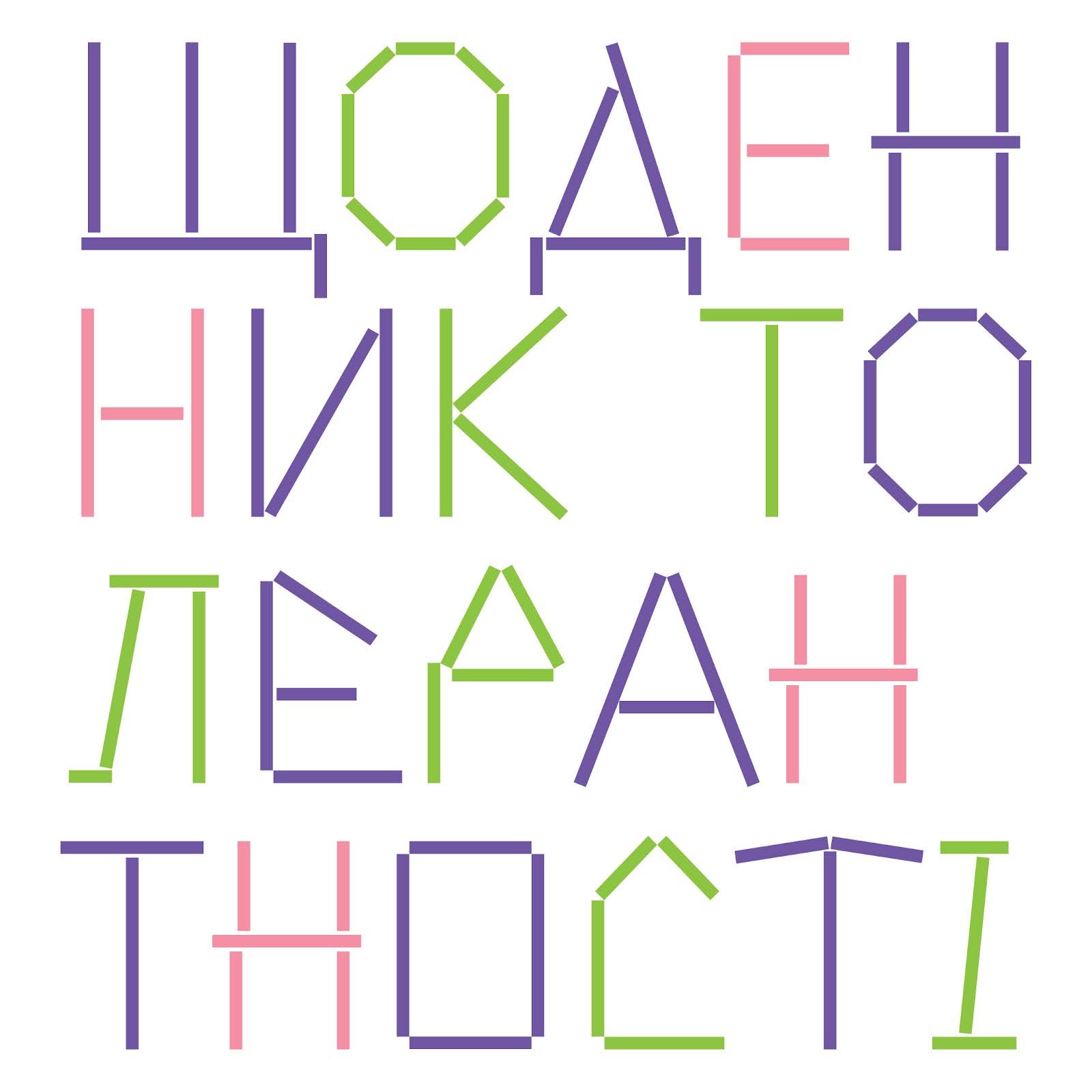
Logo of the Tolerance Diary project.
The goal of the Tolerance Diary is not only to remind Ukrainians that tolerance is a key value of a democratic state, but also to create a safe place in society and the media space for everyone – to make its most vulnerable members visible and give them a voice so that each can tell their story. Reach as large an audience as possible and encourage Ukrainians to realize the value of our rights.
The focus of the project is:
- LGBTQ+ and women's rights;
- the rights of people with mental disabilities;
- rights of people with disabilities;
- the rights of people who have suffered the consequences of war;
- as well as topics such as domestic violence, child abuse, body shaming, bullying, and mobbing.
They decided to start Tolerance Diary by giving the floor to community opinion leaders, since "these people have an audience, they are listened to, and they can be heard. They are not afraid to speak publicly — honestly and openly about such things, and they are the ones who can sow the right thoughts in the heads of their followers," explains Shast.
Prominent public figures usually have busy schedules, so they chose the video self-interview format for the project – giving an opportunity to involve as many interesting and influential people as possible in the project.
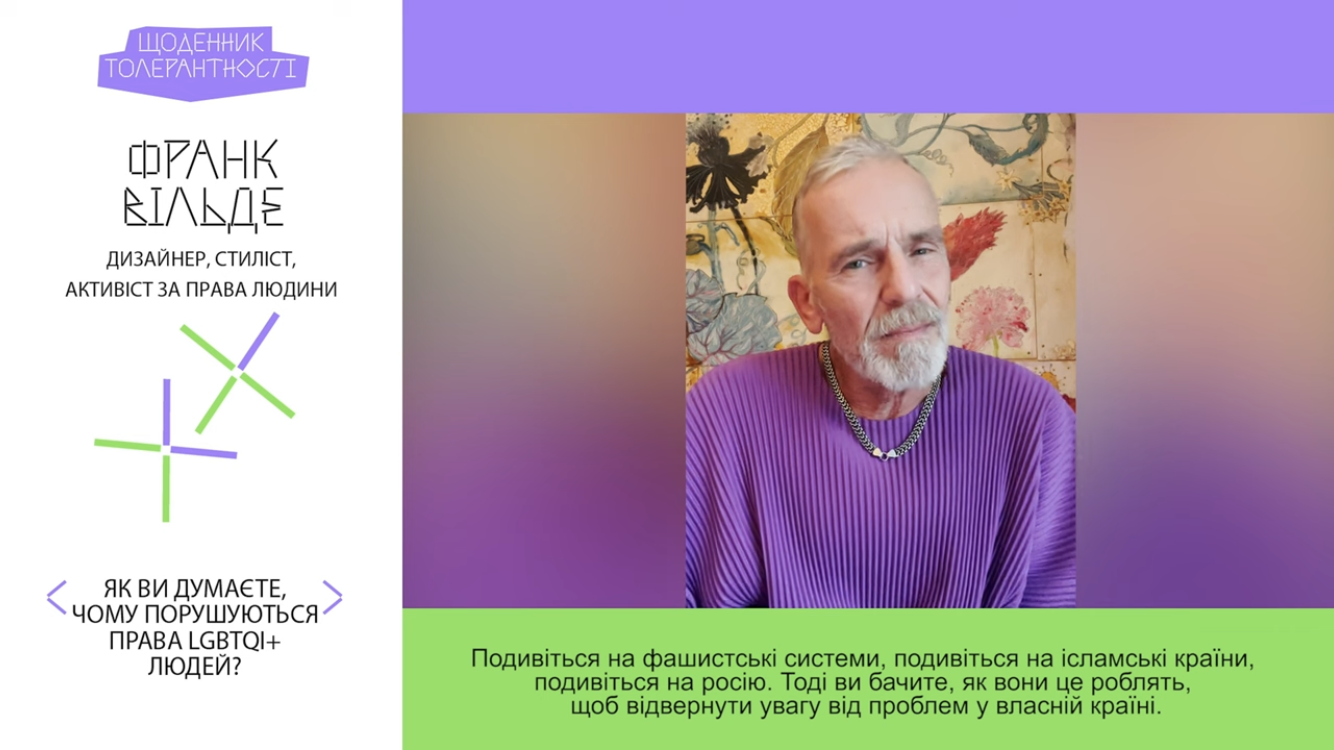
Frank Wilde in the issue about LGBTIQ+ rights.
The participants of the Tolerance Diary have already discussed topics about the rights of LGBTQ+ people, bullying and mobbing, body shaming, and women's rights. Among the speakers are Berlin-based designer, stylist, and friend of Ukraine Frank Wilde; television presenter Dasha Tregubova; MP and author of the bill on registered civil partnerships Inna Sovsun; designer and restaurateur Dasha Katsurina.
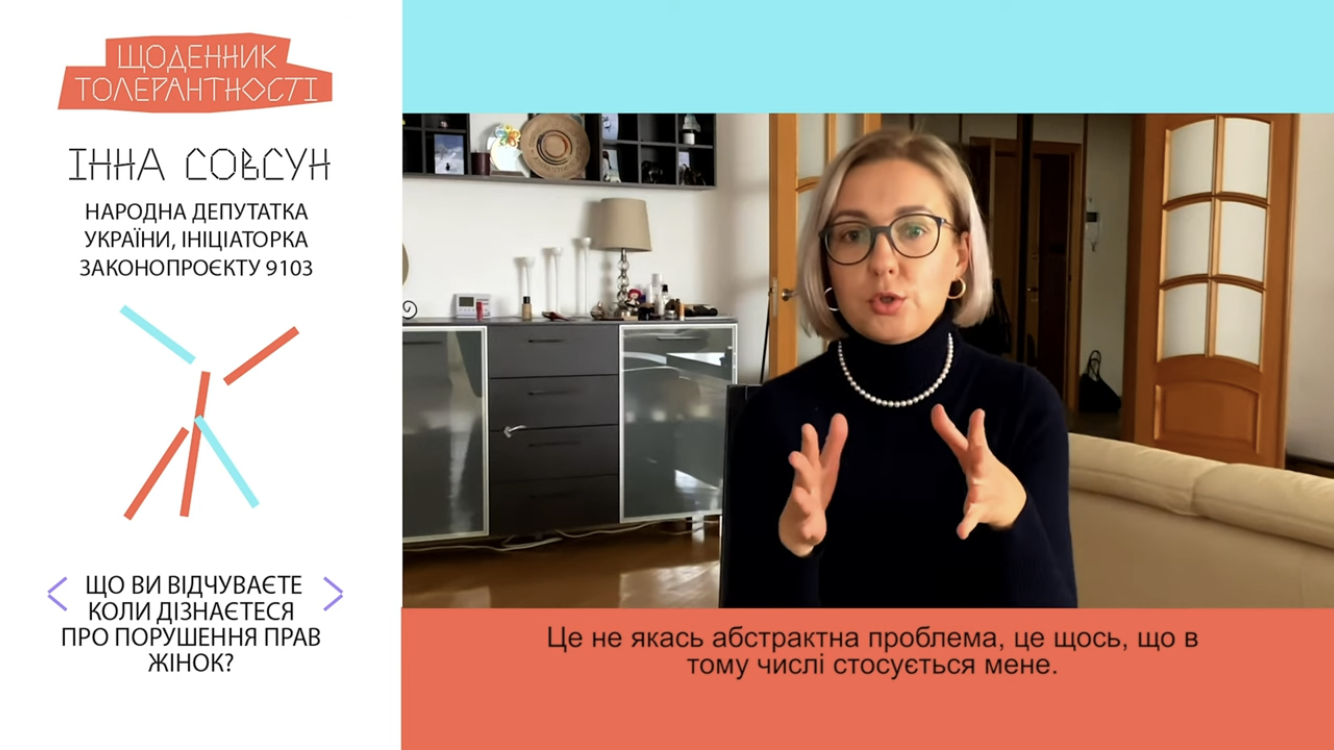
Inna Sovsun in the issue about violation of women's rights.
"We speak in simple words about important things," Shast explains. The goal was to create a social project that would show society's current problems without condemning those who can still make mistakes and to give people the opportunity to realize those moments where they could have discriminated against others, and this is exactly how to stop this flow of hate, which is quite often unconscious. It also aims to show those people who are subjected to violence and discrimination in one form or another that their lives have value, that their voices are important, and that they will be heard.
Shasta speaks about the project participants with gratitude and respect because they have the courage to honestly share their life stories to show their strength and vulnerability. By this, they set an example for Ukrainians — it is possible to be open, and even more so, that it must be done.
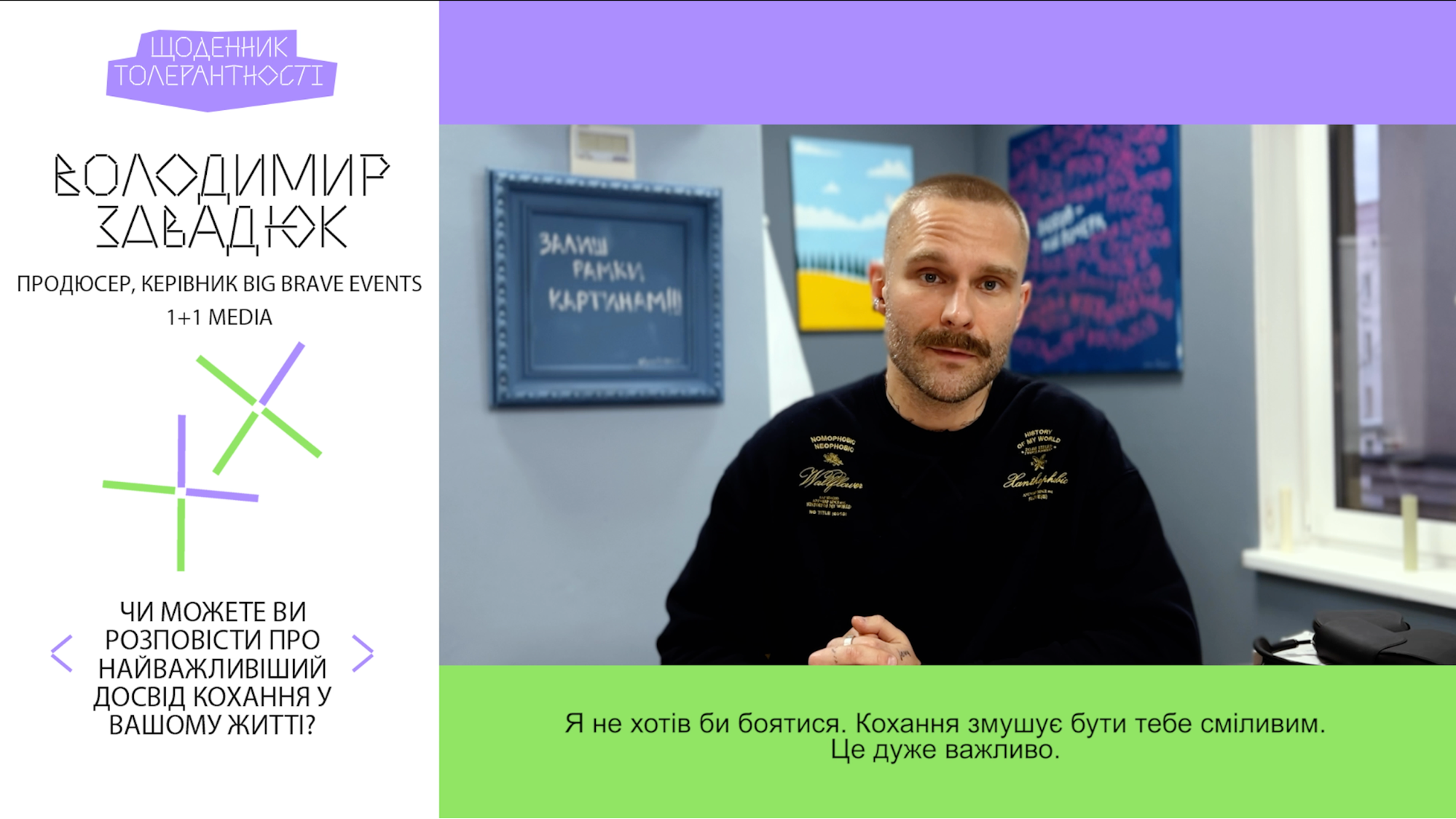
Volodymyr Zavadyuk in the issue about the rights of LGBTIQ + people.
The stories of the project are real and sincere. Dasha Tregubova recalled a case from her childhood about a girl whose teachers hung a sign with the inscription "thief" around her neck and led her around school like that. Inna Sovsun told about how a stranger tried to strangle her in the elevator when she was 12 years old. Dasha Katsurina shared that respect for one's boundaries and the boundaries of others should begin with the family. And in the issue about body shaming, three women spoke about their difficult ways of self-love, contrary to all social stereotypes.
"We don't have a script, only prepared questions for the heroes of the episodes," Shast continues. The result is always unexpected because people record themselves. But as the experience of the four issues already shows, it is always high-quality and interesting.
What's next?
Future editions of the Tolerance Diary project will tell about the lives of people with disabilities, mental disabilities, and those who suffered as a result of military operations, as well as reveal the topics of domestic violence and violence against children. In addition, several more important topics will be added — violation of the rights of national minorities, violation of the rights of people living with HIV/AIDS, the problem of sexual violence during war.
The participants of the following episodes will be famous and influential people in Ukraine — among them, for example, the head of the PACE Equality and Non-Discrimination Committee, Mariia Mezentseva, the writer Lyubov Yakymchuk, the singer Olya Polyakova and her daughter Mariia and others.
In addition, in the following seasons, the project team wants to collect as many real stories as possible from ordinary Ukrainians to show society a real picture of human rights violations using the examples of regular people and to give these people a platform where they could share their own experiences. According to the project's founders, it can inspire those still depressed to find the strength to finally get out of it. Also, the team intends to spread information about available support programs so that anyone who has been oppressed knows where to seek help and can do so.
Even more useful solutions!
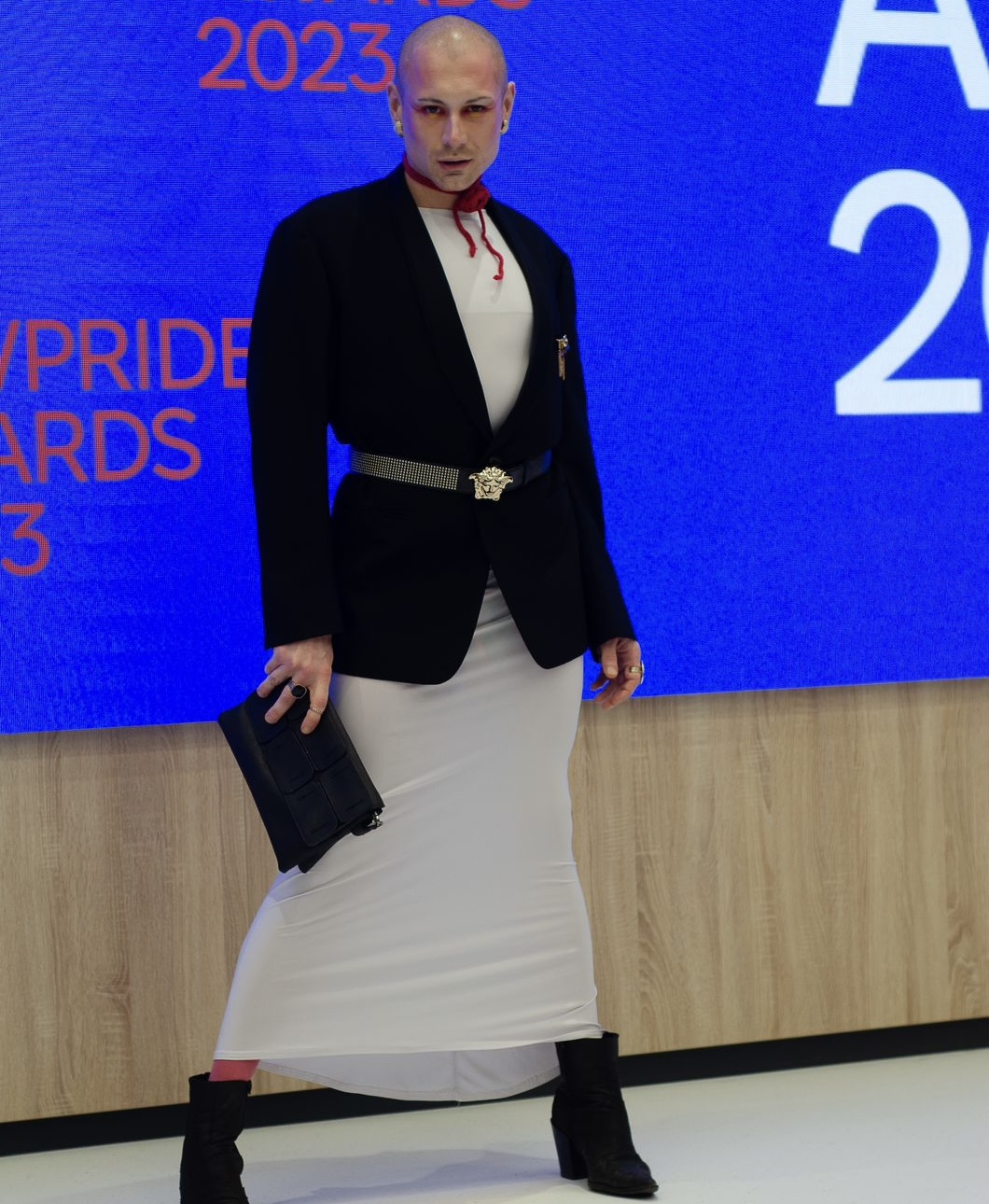
Vladyslav Shast is a nominee for the KyivPride Awards 2023.
Although the project is in its early stages, Shast and his team are already starting to receive feedback from people who have been helped by this project to realize some important things or to reveal their own traumas.
"The most valuable thing is that people have started sharing their personal experiences – so, the project is working. We will continue to take gradual and consistent steps toward our goal — to create a safe place for all members of society," says the project's initiator.
Shast advises that the Tolerance Diary is for everyone. After all, according to him, even among those who consider themselves the most tolerant members of Ukrainian society, some still use wrong terminology or may unknowingly drop some offensive comments. Shast also urges every Ukrainian to ask themselves the question, "Why exactly am I intolerant of other people – or allow such people to be in my presence?" – asking these questions may lead someone to finally change something and stop tolerating intolerance.
"We're surprised by the aggression of [Russia], but at the same time, we close our eyes to internal hatred – that is why no one in Russia questions an attack on Ukraine because aggression is the norm for Russians, first of all, in relation to one other," Shast shares his observation. "This is a country where human rights are one of the most vulnerable aspects. So, do we want to follow the path of the enemy? Shall we choose our own? Yes, it can be painful because, in the beginning, we will have to realize the level of harm we could have caused others simply because we were not taught tolerance. For decades, Russian propaganda masterfully destroyed the tendency to respect human rights – not only among Russians but also among Ukrainian society – to create even greater discord within our country. They partially succeeded. Therefore, today's main question is what path each of us will choose in the future," Shast says.
According to the activist – who was himself traumatized by bullying in his hometown as a child – non-violent communication with a deep understanding of the problems of vulnerable sections of the population is the key to understanding – and the Tolerance Diary is an example of that.
"I want people to finally start respecting each other. Because when, if not now? I know that people are usually afraid of the topics our project covers because there is too much pain, and therefore, they are fenced off from it – they imagine that it does not exist, or that it will resolve itself," says Shast. "We have been silent for a long time. It's time to speak openly and honestly, first of all with ourselves."
You can watch all the episodes of the Tolerance Diary on YouTube.
Newsletter
Digest of the most interesting news: just about the main thing



